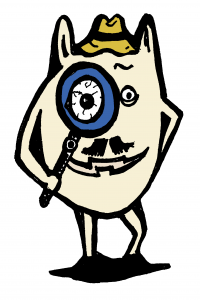
How Can I Think Differently?
Thinking differently is NOT about pretending things are fine when they are not. It’s not about ‘positive thinking’. It’s about taking a step back and looking at the situation from all angles to get a full picture.
There is no denying that being a relative of someone experiencing psychosis or bipolar can be very distressing. However, making sure you don’t fall into these negative thinking traps can help to reduce distress and keep a sense of hope.
There are Two Key Steps
Step 1. Recognise thinking traps

The next time something happens that makes you feel distressed or upset, see if you can write down your thoughts. Then, use the previous list on page ‘Common Thinking Traps’ to see if you might be falling into a thinking trap. You could keep a log of your distressing thoughts – and practice coming back to them and see if you can spot the thinking traps.
Step 2. Test your thought

Don’t assume your first thought is the only one; put it through some tests first.
- Is there any evidence for it?
- Is there any evidence that suggests it might not be wholly true?
- Do I need to gather some more evidence?
- Could I look at this situation from a different point of view?
-
- Discuss your thought with a friend / supporter or relatives in the REACT GROUP – maybe they have a different point of view that might be useful to consider?
Watch Julie discuss her experience of learning to see things differently
Debbie

When my husband Tom got admitted to hospital, I felt really guilty. I should have known he was getting ill, I should have been able to stop it from happening.
I talked to my friend about it, and she pointed out that Tom had been under a lot of stress at work and had hidden his worries from me. He had told me that he wasn’t hearing voices anymore.
I realised that I couldn’t have done anything to help him. I’m still really worried about Tom but I don’t feel like I am to blame.
[full]


